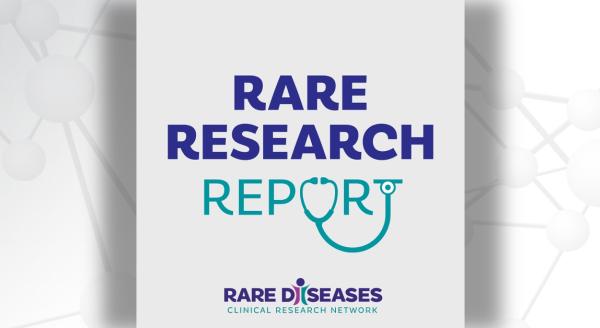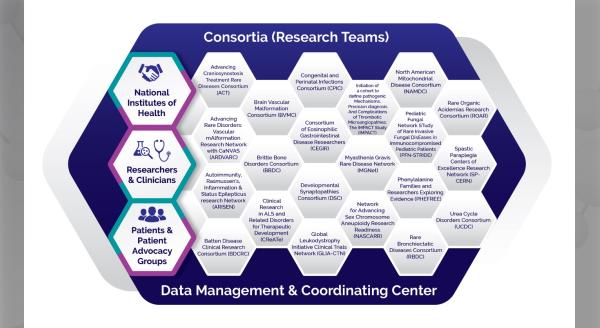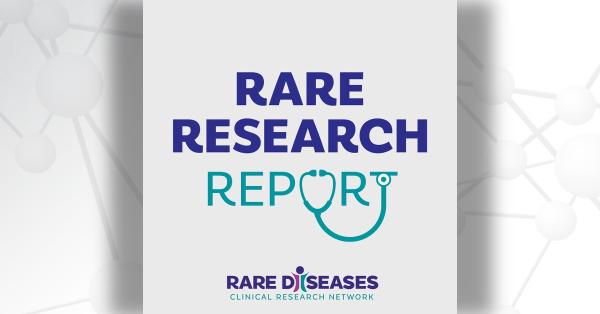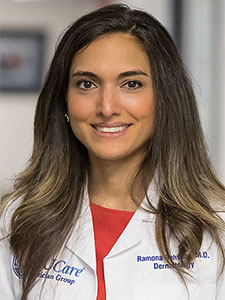 The NCATS Rare Diseases Are Not Rare! Challenge aims to raise awareness of rare diseases in novel and creative ways. Led by the NCATS’ Office of Rare Diseases Research (ORDR), the Challenge encourages collaboration between rare disease patients, families, advocacy groups, doctors, researchers, and community members.
The NCATS Rare Diseases Are Not Rare! Challenge aims to raise awareness of rare diseases in novel and creative ways. Led by the NCATS’ Office of Rare Diseases Research (ORDR), the Challenge encourages collaboration between rare disease patients, families, advocacy groups, doctors, researchers, and community members.
Here, we learn more about 2020 Challenge awardee Ramona Behshad, MD, an assistant professor in dermatology at Saint Louis University School of Medicine. Behshad’s entry, Rare Disease Photo Challenge, is a social media campaign to help raise awareness about rare diseases.
How has rare disease research impacted your life?
“This patient unknowingly taught me about displaying strength and dignity during both good and bad times.”
As a dermatologist, I have cared for patients with rare diseases over the course of my career. My first experience occurred during medical school, when I cared for a patient with basal cell nevus syndrome. He showed tremendous resilience despite his debilitating disease. This patient unknowingly taught me about displaying strength and dignity during both good and bad times, and his example is one that I hope I can emulate during adversity.
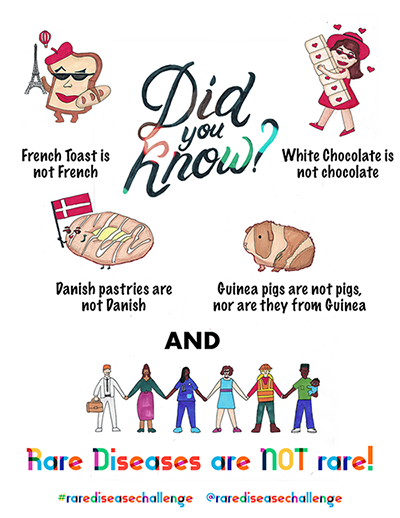
Why and how would you encourage people to get involved with rare disease research?
“The thought that such insights might someday prevent or treat rare disease is extremely motivating.”
Ninety-five percent of rare diseases do not have a treatment. While there have been many recent successes, much remains to be done. Gaining new insights into the errors that cause disease is incredibly satisfying and helps us understand normal processes as well. The thought that such insights might someday prevent or treat rare disease is extremely motivating.
For example, the evolution of management for Basal Cell Nevus Syndrome with targeted therapies shows the advances that have occurred in medicine. Early diagnosis and state-of-the art treatment have resulted in these patients being able to have a better quality of life, living with a disease that in the past resulted in severe disfigurement.
What makes you hopeful for the future?
“Help spread the message that rare diseases are not rare!”
The National Organization for Rare Disorders (NORD)! This wonderful organization provides education and encourages collaboration, which is necessary for solving the mystery of rare diseases. They also help raise awareness. Anyone can join me in spreading the message on social media (#rarediseaseday, #rarediseasechallenge). Help spread the message that rare diseases are not rare!
Read more about the 2020 NCATS Rare Diseases Are Not Rare! Challenge.


